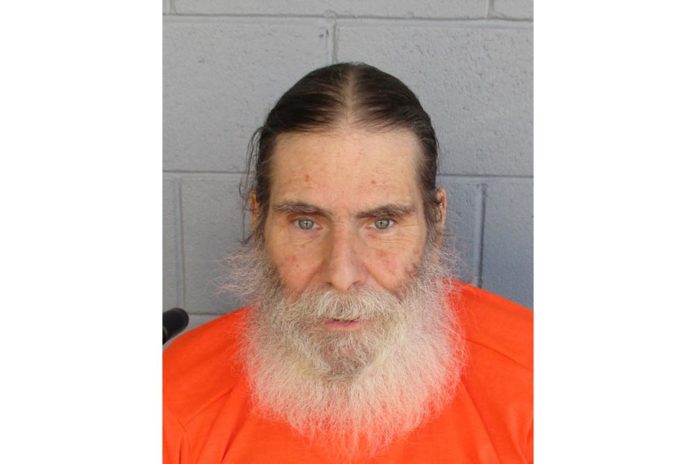
An attorney for an Arizona death-row prisoner has urged an appeals court to call off the execution scheduled for Wednesday of his client who was convicted in the 1984 killing of an 8-year-old girl, arguing the condemned man’s spinal condition would make it excruciatingly painful for him to be strapped on his back to a gurney before he is lethally injected.
At a hearing Monday before the 9th Circuit Court of Appeals in San Francisco, a lawyer for Frank Atwood also questioned whether the state has met a requirement that the lethal injection drug’s expiration date falls after the execution date.
And even though he didn’t pick lethal gas as his execution method, Atwood also is challenging Arizona’s protocol for gas chamber executions. His lawyers say Atwood has a right to choose between methods of execution that are constitutional and said the state should switch its lethal gas from hydrogen cyanide gas to nitrogen gas because nitrogen would produce painless deaths.
Prosecutors say Atwood is trying to indefinitely postpone his execution through legal maneuvers. They say Atwood’s challenge to the state’s cyanide gas execution procedures is moot because the execution will be carried out by lethal injection.
Last month, Atwood declined to choose between lethal injection or the gas chamber, leaving him to be put to death by lethal injection, the state’s default execution method.
Atwood, who is scheduled to be executed at the state prison in Florence for his murder conviction in the killing of 8-year-old Vicki Hoskinson, lost on all those arguments in a lower-court ruling issued over the weekend and appealed those decisions to the 9th Circuit Court of Appeals.
Authorities have said Atwood kidnapped Hoskinson, whose remains were discovered in the desert northwest of Tucson nearly seven months after her disappearance. Experts could not determine the cause of death from the remains, according to court records.
Atwood maintains that he is innocent.
Atwood’s lawyers have argued the state’s death penalty procedures would subject their client, who has a degenerative spinal condition that has left him in a wheelchair, to excruciating suffering if he were strapped to a gurney while lying on his back during his lethal injection.
Prosecutors say Atwood can alleviate pain caused by lying on his back by propping himself up with a pillow and using the tilt function on the execution table. Atwood’s legal team rejected a proposal from the state to also let one of the condemned man’s legs remain free during the execution as another way of easing his pain.
“The state here is not trying to subject Mr. Atwood to any to unnecessary pain,” said Jeffrey Sparks, an attorney representing the state. “It’s trying to accommodate the claims he is raising while also still carrying out a lawful execution.”
Atwood’s attorneys have questioned whether the compounded pentobarbital to be used in the execution meets pharmaceutical standards. “The testing (of the compounded drug) cannot be relied on,” said Joseph Perkovich, one of Atwood’s attorneys.
Even though he didn’t pick the gas chamber, Atwood challenged the state’s lethal gas protocol that calls for the use of hydrogen cyanide gas, which was used in some past U.S. executions and by Nazis to kill 865,000 Jews at the Auschwitz concentration camp alone. His lawyers say hydrogen cyanide gas is unconstitutional and produces agonizing levels of pain in executions.
His lawyers argue he has a right to choose between methods of execution that are constitutional and said the state should switch its lethal gas from hydrogen cyanide gas to nitrogen gas because nitrogen would produce painless deaths. Arizona prosecutors say nitrogen executions are “untried and untested.”
Arizona, California, Missouri, and Wyoming are the only states with decades-old lethal-gas execution laws still on the books. Arizona, which carried out the last gas chamber execution in the United States more than two decades ago, is the only state with a working gas chamber.
In recent years, Oklahoma, Mississippi, and Alabama have passed laws allowing executions with nitrogen gas, at least in some circumstances, though experts say it’s never been done, and no state has established a protocol that would allow it.
Republished with the permission of The Associated Press.













